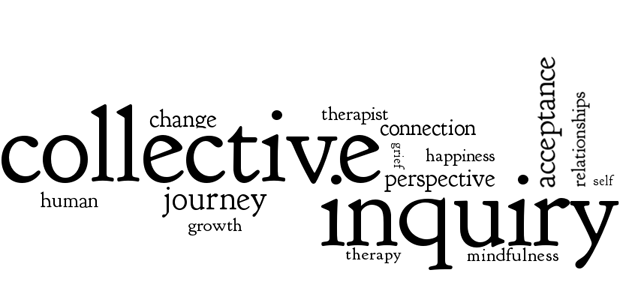

On the drive home over the weekend, my husband and I stumbled onto an episode of On Being on NPR. The show was part of a series titled “The Civil Conversations Project,” which is an effort to begin a discussion around topics that are often polarized: economic crisis, abortion, same –sex marriage, and so on. Of course, Collective Inquiry does not endorse a specific side of any debate – I’m not sure the five of us could agree on one side, anyways – but I want to highlight the essence of what these conversations represent.
I listened to the “Pro-life, Pro-choice, Pro-Dialogue” episode in which David Gushee, a professor of Christian Ethics, and Frances Kissling, the president of the Center for Health and Social Policy and a Catholic, discussed their differing viewpoints on abortion.
Ms. Kissling quoted a Buddhist monk, Thich Nhat Hanh, who said “If you don’t’ want to be changed, don’t go into dialogue.” She went on to explain that her decision to talk about topics in which individuals are often gridlocked is not to change anyone else’s mind but to change her own – to expand her own views and understanding of the topic by hearing viewpoints that differ from her own.
Hearing this discussion was honestly breathtaking and moving for the sole reason that I learned so much more about the topic than I had in other forms of debate and converse. Regardless of whether I agreed with what each person said every time, it didn’t matter – it was one of the first civil conversations I had heard around such a divided topic. And it felt incredibly refreshing.
Similar to with these polarizing topics, I have seen many couples who become locked in a similar problem – communication that aims to change their partner’s mind rather than to learn more about their partner. John Gottman, a prominent marriage researcher, refers to this point as gridlock, when couples are no longer able to talk about an issue and which often leads to difficulty in talking about anything. When couples finally are able to talk, the comments are mostly negative.
Gottman found that solving these types of problems in a marriage are not important compared to whether or not the couple can have a dialogue with their partner. One of the major issues of gridlock is the loss of feeling good will towards your partner. Often when we disagree with someone, especially on topics that resonate on a personal level, we tend to see the opponents as bad people who represent the evil counter-argument of our beliefs. In reality, their belief may only be slightly different. More importantly, their different belief has no bearing on their value as a person and their right to good will and compassion. We sometimes lose sight of that, even with our own partners who we love the most.
Next time you are having a conversation with your partner, think about how you approach the conversation. Is your purpose solely to change your partner’s mind? If so, the conversation will only push the two of you farther apart and entrench you both in a gridlock in which no one is willing to budge. Instead, have the conversation in order to learn more about your partner and in order to further understand the topic as a whole which will, in turn, help to strengthen not only your marriage and but also your own ideologies.
Although it can be difficult at times, try to keep the importance of compassionate and civil dialogue in mind, especially in your relationship and especially during an election year.
Share your thoughts
No Thoughts About Gridlock and Dialogue